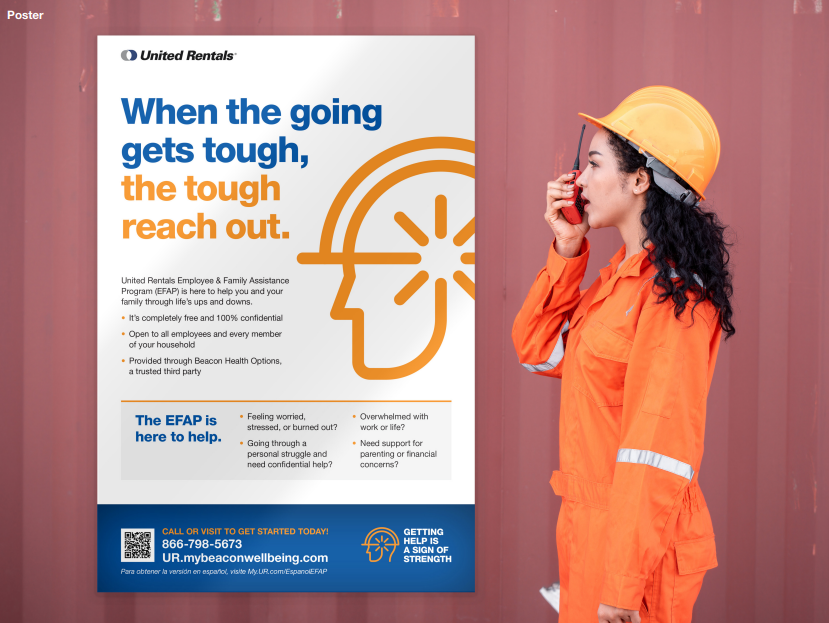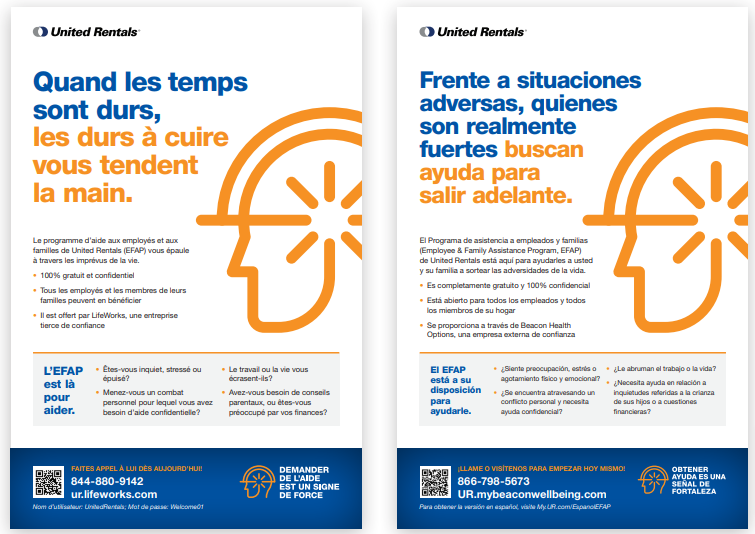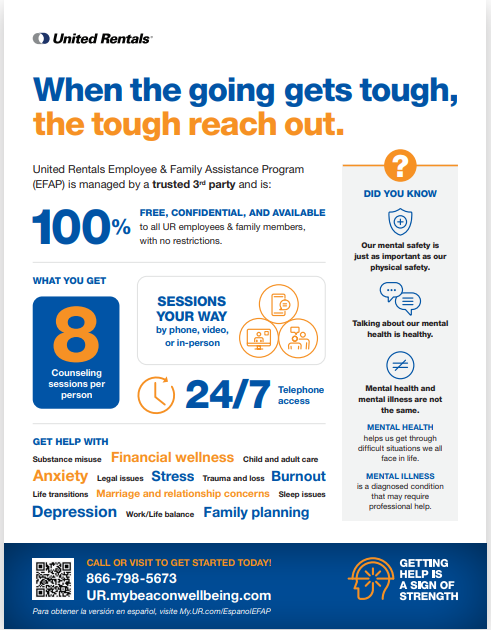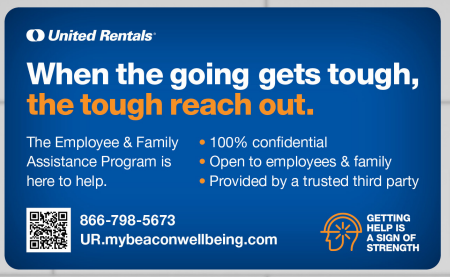In the face of adversity brought by COVID-19, Danielle Foley, Teryl Taglieri and their team at United Rentals Inc. (UR), the largest equipment rental company in the world, took a firm stance on employee mental health. With safety — for employees, products and services — as a key business driver, it was important to address the rising employee mental health concerns in their facilities.
Foley, Taglieri and team identified its primary audiences as the company’s 19,000+ employees in the U.S. and Puerto Rico, 2,000 branch managers, the families of employees and a predominantly male workforce. With this in mind, they knew it was crucial to break the stigma around mental health and equip managers with the skills to address the issue.
Additionally, branch safety leaders, the company’s mental health employee resource group (ERG), executives and the human resources department played pivotal roles in supporting the campaign.
By prioritizing mental health, UR aimed to safeguard employee engagement, retention and overall safety in their industry.
Constructing Mental Health Awareness
The campaign set out to achieve two primary goals. The first was focused on elevating mental health awareness and reducing the stigma associated with seeking help. Objectives included increasing Employee & Family Program (EFAP) utilization, raising awareness of mental health resources, and emphasizing the connection between mental well-being and physical safety by utilizing the already ingrained safety culture.
The second goal aimed to equip managers with the knowledge and confidence to discuss mental health openly, leaning on UR’s core value of leading with empathy.
Laying a Rock-Solid Communication Strategy
To lay the foundation for the campaign, UR conducted employee and manager focus groups and engaged with the mental health ERG. Based on the feedback received, a creative theme was developed: "Getting Help Is a Sign of Strength."
This theme emphasized UR's commitment to employee well-being and utilized a visual symbol of a figure in a hard hat to resonate with employees. Multiple communication channels were employed to reach non-desk workers effectively, and posters were translated in Canadian French and Spanish to align with audiences in French-speaking Canada and Puerto Rico, as well as Spanish speakers in the U.S.


Breaking Ground on Conversations
The campaign emphasized key messages tailored to different stakeholders. Employees were reassured that UR cared about their mental health and encouraged them to prioritize it, stressing the impact on both personal and professional aspects of their lives. Managers were reminded of their role in fostering open conversations, sharing their own experiences and providing resources to employees. Families were made aware of the available support through EFAP.

Cementing the Target Audience
The campaign employed a range of communication tactics throughout 2022. These included influencer group education, executive support packages, manager training modules, print materials for branch locations, digital packages with plasma screens and intranet banners, mirror clings (see the example below) and safety tie-ins during monthly meetings. The comprehensive approach aimed to create a surround sound effect and engage employees and managers effectively.

A Solid Victory
The campaign achieved remarkable results, surpassing its goals and objectives. EFAP utilization saw a significant increase and awareness of UR's mental health resources improved. The training modules provided for managers were well received, with 19% of managers engaging with them, exceeding the target by 4%.
Qualitative feedback included praise for the campaign's impact on mental health awareness and well-being, with participants recommending the training for all employees.
“This is amazing! Clinical depression doesn’t have favorites….. I’m sure you already know someone suffering from it... someone like me. Thank you!”
“With everything going on in the world, I’m glad to see people taking mental health a little more seriously.”
UR's comprehensive and research-based communication strategy successfully addressed the business need for supporting employee mental well-being by prioritizing mental health as an integral part of its corporate culture. Overall, this resulted in improved safety, engagement, productivity and retention.
Dawn De La TorreDawn De La Torre is the IABC content senior associate, based in Chicago.